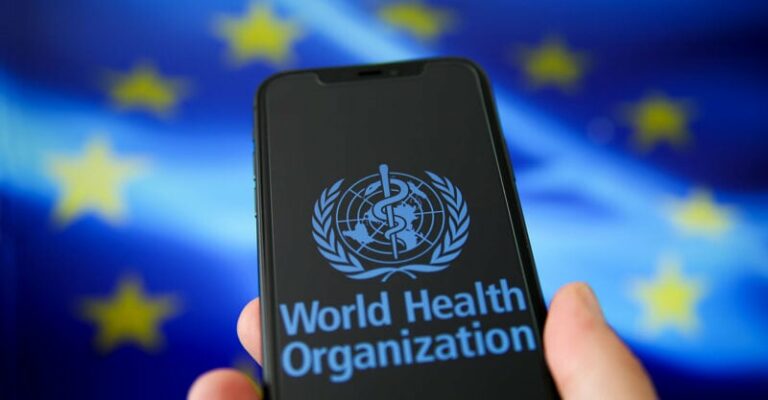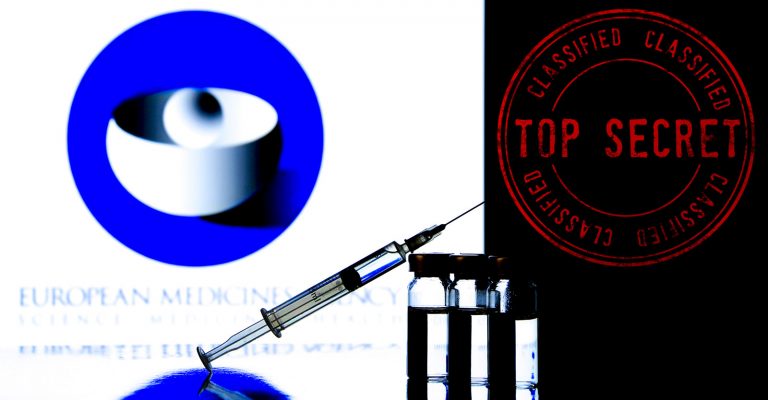Watch: ‘War on Farmers’ Threatens European Food Sovereignty and Health
Irish commentator Ivor Cummins told Kim Iversen a conspiracy-like “war on farmers” using sustainability as a justification aims to gut local agriculture in Europe, enabling a corporate processed food takeover — with profound public health risks.
“The farmers actually realize this is an end-game of sorts and that now is the time to dig in and stand — or there won’t be anything to stand for,” Irish geopolitical commentator Ivor Cummins told Kim Iversen on Wednesday’s segment of “The Kim Iversen Show.”
Iversen and Cummins discussed the ongoing wave of rage fueled by growing existential anxiety among European farmers as they contend with an accelerating push to gut rural agriculture in the name of sustainable development.
The spark igniting the spreading protests, Cummins explained, stems from farmers “finally getting it” — recognizing that orchestrated climate change and “green” regulatory policies serve as mere pretexts for advancing globalization that aims to strip away localized food production and self-sufficiency.
“The farmers are beginning to realize, like a lot of people … [that] this is an orchestrated campaign to … almost eliminate us and to replace local farming, healthy foods … with a kind of a massive pipeline of ultra-processed food from the big corporations,” he said.
According to Cummins, it’s all connected to the United Nations (U.N.) Agenda 2030 for Sustainable Development and World Economic Forum (WEF) initiatives — “‘You will eat the bugs’ and all that nonsense,” he said.
Although European farmers have been fighting for years against some of these policies, they are beginning to understand that it’s no longer “just the usual to and fro with governments” over things like diesel taxes, Cummins said.
‘Remorselessly crushing countries’ sovereignty’
Governments have implemented a spate of new green regulations, such as limits on nitrogen emissions from Dutch farming, as a pretext to cram through sweeping changes under the guise of sustainable development.
In the Netherlands, the government is focusing on nitrogen reduction, threatening to shut down over 3,000 farms. However, according to Cummins, the country leveled off and began reducing its nitrogen input into the rivers by around 2015.
“In Ireland … leaked memos from the [agriculture] department suggested they’d like to cull 200,000 cows,” Cummins noted.
In France, the government used taxes and other levies with farmers. “Climate is always just an excuse,” he said.
Governments are also targeting local power generation, according to Cummins. “They’ve been eliminating all those in Ireland,” he said. “They want power to be kind of a weapon [so] you’re dependent on the power grid.”
Cummins raised concerns over electric vehicles, which he contended have an “absurd” impact on the environment from the mining of the minerals used to make the batteries.
“The idea is to get people dependent on electrical supply, whereas locally provided or stored diesel gives people independence,” he said.
Pointing to the rollout of “15-minute cities,” Cummins said, “Everything is moving towards remorselessly crushing countries’ sovereignty and their nationalist ideals and their local self-sufficiency.”
“You’ll own nothing and be happy and we’ll provide your food and your power,” he said, “until you say something negative against the government.”
Ultra-processed food at root of chronic disease epidemic
Cummins, a researcher on the relationship between diet and disease and co-author of “Eat Rich, Live Long,” discussed how the return to time-tested ancestral eating could result in profound gains in public health.
He suggested that embracing these old-school farmer-supplied staples would not only save local farming but could also devastate the pharmaceutical industry.
“The simplest possible thing I can say … is if you just eat meat, fish and eggs and kinds of above-ground vegetables that are not starchy,” he said, “most of Pharma would collapse within a few years” because it is built on statins and “antihypertensives” (high blood pressure drugs).
Today’s long-shelf-life ultra-processed fare — laden with vegetable oils, sugars and refined grains — comprise upwards of 60% of the average person’s calories and drive the “devil’s triad” of modern chronic disease: Type 2 diabetes, obesity, Alzheimer’s disease (now sometimes called Type 3 diabetes), according to Cummins.
Such foods are “internationalized,” Cummins said. “They’ve got amazing supply chains that make big food business … a ton of money. And they’re junk.”
To support this diet, Cummins argued, one must “eliminate most of what’s in the supermarket because it’s all ultra-processed” and just rely on “what we ate, say, five to 10,000 years ago.”
He admitted that changing mass dietary habits poses challenges given the engineered addictive properties of ultra-processed foods and their dominant market footprint.
“It’s not as simple as just flicking a switch because the temptation to eat the ultra-processed stuff is enormous,” Cummins conceded. “All of it is delicious and addicting,” Iversen said. “That’s kind of the point of it.”
‘The food tastes like plastic here’
Having lived in France and Italy, Iversen shared her observations of the differences between European small-farm cultivation and the American system of corporatized agriculture.
Families in European countries purchase groceries practically every day given the quicker spoiling of less-processed foods, she said.
She also connected additive-laced American fare with national obesity patterns, pointing to the comparatively larger size of her U.S.-raised ethnic Vietnamese cousins as an example.
“It’s probably … why Americans are bigger and fatter — the hormones and the stuff that they stick in our food versus Europeans’,” she said. “We get all the GMOs” (genetically modified organisms).
Discussing the disappearing smallholder farmer in the U.S., Iversen shared anecdotes about the financial headaches that ended her own family’s multi-generational farm ownership.
She summarized the universal plotline where backbreaking work and razor-thin margins force generations of farmers to abandon once-treasured lands.
“My father sold the farm,” Iversen said, chronicling the succession of relatives converting to truck driving and other vocations for income as the countryside consolidated into factory operations.
Iversen asked Cummins whether Europeans were concerned about an American-style takeover of their food systems, given that when she returned from overseas trips, she always found “the food tastes like plastic here.”
Cummins said the majority of people “don’t really think too much,” blaming the increasingly poor diets in Europe for the gradual lowering of critical thinking.
“Most normal people just assume the food will continue to be supplied,” Cummins said, “They don’t seem to connect the war on farmers with actually a lower amount of high-quality food.”
European Parliament is a ‘talk shop’ like the old Soviet system
Cummins recounted Professor Richard Werner‘s analysis that the structure of centralized power in Brussels — European Parliament headquarters — mirrors the old Soviet control model.
Cummins said Werner highlighted the work of “one or two historians” who have written that the European Union (EU) has “literally leveraged the Soviet centralized system almost exactly.”
He critiqued the system that allows the unelected commission to dictate all rules and strategies while the powerless European Parliament merely provides theater with its inconsequential debate, according to Cummins.
“They don’t make the laws and it’s a ‘talk shop,’” he said, while an unelected cabal makes the decisions.
“People have been programmed to think of that as a conspiracy theory,” he said, with too many trusting the authorities and distrusting those who question them.
Cummins said:
“The EU commission at the top is now fully invested with the U.N., the WEF and all the other groups like Club of Rome and Trilateral Commission … all the way back to the U.S. State Department which pulls a lot of strings. And they are doing what the top strata believes is best for the planet. …
“[Those] at the top truly believe the world needs to be managed and that means slowing down the use of resources, guarding all the resources for the future and … bringing in a totalitarian system where people feel that they’re ‘kind of’ free and Western.
“You keep them under that illusion but the reality is everywhere you turn, it’s a centralized economy run from the top. Hence we see all this madness.
“So it makes no sense … to take away … local sovereign sources of energy and food.”
Watch here!
Suggest a correction







